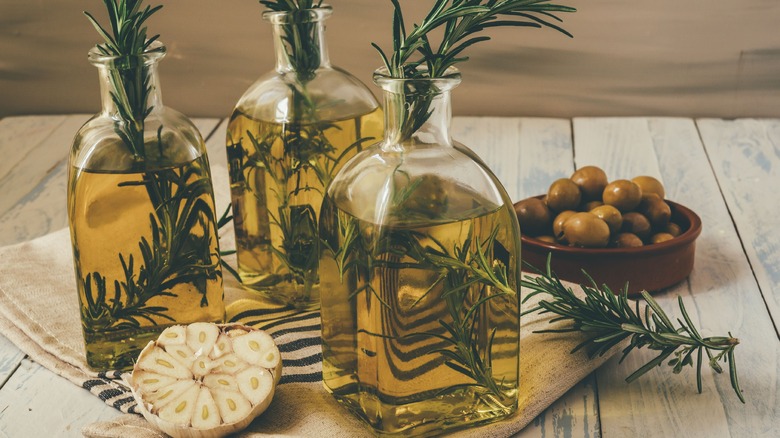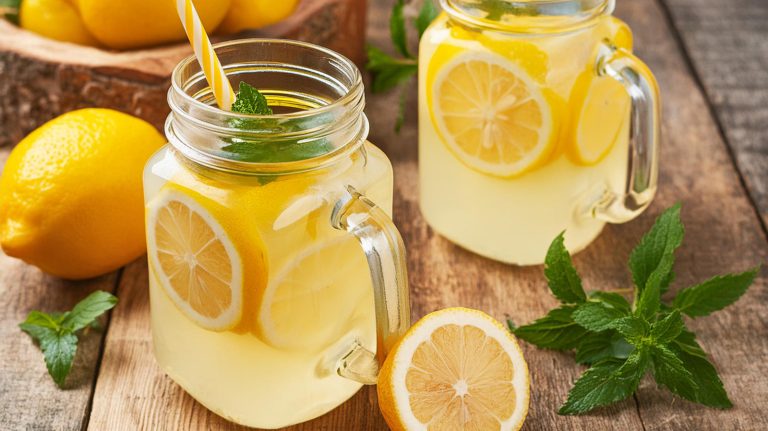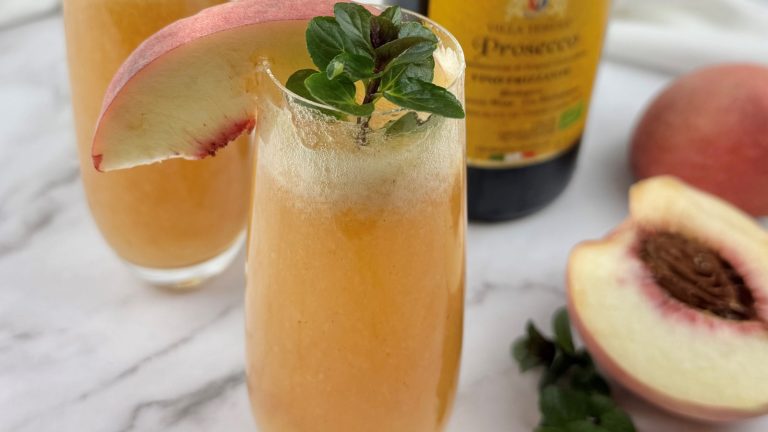When you take the time to fry up garlic, shallots, or green onions, your kitchen smells amazing. Cooking alliums in oil doesn’t just create a delicious addition to sauces, dressings, and other recipes. The oil itself also becomes uber-flavorful. Food Network chef Bobby Flay recommends making good use of the infused oil, instead of tossing it in the trash.
In an Instagram post from Misfits Market, Flay recently shared why he loves shallots — and why he never throws away the oil he cooks them in. “I’m a big fan of shallots. Shallots are a little more sweet than sort of an onion, but they always bring that really great savory flavor,” Flay said. “A really good thing to do with shallots is to make a shallot oil. You crisp up the shallots in the oil, and then you save the oil, and you cook up a protein, like a piece of chicken, or some vegetables in it, and it has a great flavor.”
Not sure how to start incorporating shallots into your recipes? Try swapping shallots in for onions for a sweeter, less overwhelming taste. While they aren’t a good fit for dishes where onions are the star of the show (like French onion soup), shallots can be great in salad dressings, seafood recipes, and more.
Creating and using infused oils in your kitchen
If you’re going to use an infused oil right away — for example, if you’ve just fried shallots Bobby Flay-style and you want to grill chicken, fish, or vegetables while infusing shallot flavor — you don’t need to worry about storing your infused oil long-term. Simply grill your shallots, use your infused oil, then dispose of it. In addition to using shallot-infused oil, you can also try frying garlic, which can be especially delicious if you use the infused oil to fry up chicken for chicken Parmesan. Try frying some thyme in oil before searing a beef tenderloin, or use fresh rosemary to create a fragrant oil to sear a pot roast before popping it into the slow cooker.
If you want to create cooking oils that you’ll store in your kitchen for a few days, weeks, or months, however, you’ll need to take some safety precautions. Research has shown that simply placing herbs, vegetables, or garlic into oils can actually create an environment that’s super-conducive to bacteria growth, so it’s important to take precautions to keep your oils safe. Scientists at Penn State found that treating herbs, vegetables, and garlic with citric acid actually stops bacterial growth, offering a simple solution.
After you’ve created your infused oil, it’s important to follow standard oil storage rules. Keep it in a cool, dark place, and be sure that you consume your infused oil within a month or two.






